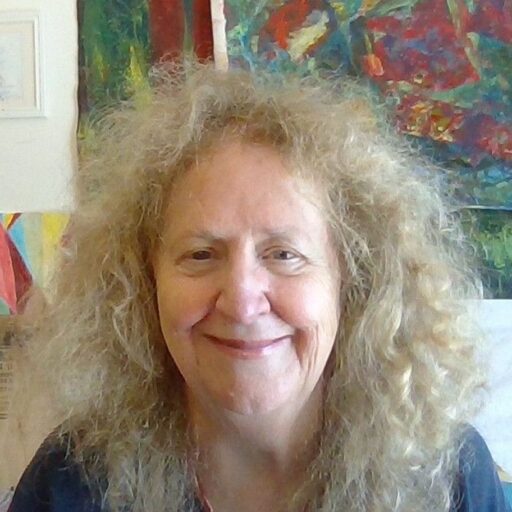In recent months I’ve thinking about Rosebery & Warren’s (2008) concept of science talks. In addition to modeling science talk for my own students by doing it with kids, I’ve been trying it out in an undergraduate physical science course I co-teach with a chemist. The students had been given the assignment to come up with an inquiry lesson plan, which was troubling many who were unsure as to what that meant. My colleague asked me to talk with the students about what inquiry teaching is. My mind raced as I thought about finding a way not to lecture. “How about if I gave you a lecture on how to teach through inquiry?” I asked the class, trying to buy time. “That would be an oxymoron,” someone said.
I don’t usually teach off the cuff. I knew I was committed to science talk, and decided to see what would happen, and hoped it wouldn’t be too boring. I remember worrying, “Oh my God, more talk. Will they stand for it?” I should have known students would be interested. I often tell future teachers that students are always eager to talk about their thinking when the listener is genuinely interested.
I really started thinking about this approach to teaching last summer, when one of my new MAT students asked, “Well how can students learn through discussion?” The kind of discussion we were considering at that time was not teacher-led, but based on expansive consideration of students’ ideas. Reading Rosebery and Warren’s book this fall cemented those ideas.
The principle that students actually know and are able to contribute something flies in the face of the standards-based nonsense that is prevalent in education. Since open-ended discussion is unpredictable, the teacher cannot guarantee that conversation will not stray from the standard posted on the board. Limiting instruction to one a day was never the intention of those who wrote broad, rich (although flawed) standards such as the National Science Education Standards. However, since tests focus on de-contextualized minutiae and facts, this original vision has been trampled in the mud.
An episode of instructional conversation. Which brings me back to inquiry. In physical science class I posed the question, Is hands-on the same as inquiry? Can something be inquiry without being hands on? My goal in posing these questions was for students to develop a public, shared understanding that inquiry is a way of looking at the world.
Many students offered opinions, and Michael (a pseudonym) brought me to a halt by saying, Yes, it’s like what we did the first day of class (when students wrote and shared science learning autobiographies). When I started the conversation I didn’t know where it might go, but I had an instinct, based on experience, that this might be a valuable contribution. I myself didn’t fully understand what he meant, and asked whether everyone had understood Michael’s idea. I asked him to elaborate a little, and it became clear that what he was talking about was important. Others picked up on Michael’s conversational thread, and the discussion became a way for the class to look back over the semester and start making sense of what had been to some degree, disconnected episodes of hands-on activities.
After about 20 minutes I felt it was right to introduce the idea I was aiming for. “So I’ll give you my opinion of what inquiry is—it’s a very broad definition.” Anna jumped up and got ready to write my definition on the board. “I think inquiry is the position that the facts of science are the result of previously asked questions.” I actually wanted to say “stance,” but thought it might be too much jargon, one of those split-second decisions teaching requires. In spite of the somewhat awkward phrasing, we talked about what that might mean.
During the course of the instructional conversation ( See Tharp & Gallimore’s 1988 book) someone brought up our previous discussion, from earlier in the semester, about why the idea of Pluto no longer being classified as a planet had been so very upsetting to many in the class.
“What is the question to which ‘Pluto is a planet’ would be the answer? What do you think Clyde Tombaugh was asking when he proposed Pluto as a planet?… I wonder whether, if the idea that Pluto is a planet had been presented to you when you were young as the answer to a question, whether you would now be so upset?” There was a generalized murmur of “No.”
I ended saying, “There are many ways to teaching using inquiry. I can’t tell you a formula. But does that help?” The course of yeses sounded genuine.
There is a lot more to think about here: why this decision or that was made based on what instinct and experience, how this was a “just in time” kind of instruction, since the students were eager to have enough information to complete an assignment they considered at least somewhat interesting and “fun.” There are also things I could have said better or differently in responding to students’ conversational moves. I raise the issue of teaching through conversation however because I am convinced it is crucial to helping students understand science.
References
Rosebery, A.S. & Ballenger, C. (2008). Creating a foundation through student conversation. In A. Rosebery and B. Warren (Eds.). Teaching science to English language learners, pp. 1 – 12. Arlington, VA: NSTA Press.
Tharp, R.G & Gallimore, R. (1988). Rousing minds to life: teaching, learning and schooling in social context. London: Cambridge University Press.
